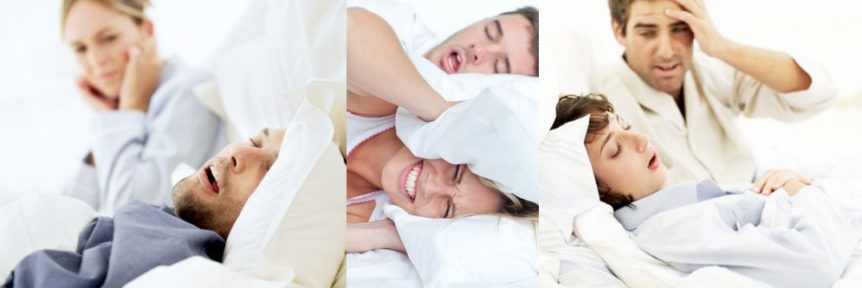Snoring and Sleep Apnoea
Snoring and sleep apnoea (where people stop breathing) is surprisingly common. A University of Sydney study revealed that 81% of men tested snored, with 25% having problems breathing. Untreated sleep apnoea has been strongly linked to heart disease and hypertension. Chronic daytime fatigue and the constant need for stimulants during the day (such as caffeine) may be the first signs of sleep apnoea.
When people do not receive sufficient oxygen at night due causes like chronic blocked sinuses, enlarged tonsils or a collapsed airway, the body becomes oxygen-deprived, resulting in sleep apnoea.
The standard of care for treating sleep apnoea in Australia is with either a CPAP machine or a dental appliance to improve the patient’s ability to breathe correctly.
Correctly identifying the causes of sleep apnoea and reversing contributing factors often goes a long way to reducing or eliminating the condition. Referral to an ENT specialist, eliminating chronic airway allergic conditions and orthopaedic jaw expansion are just some ways sleep apnoea can be alleviated.

